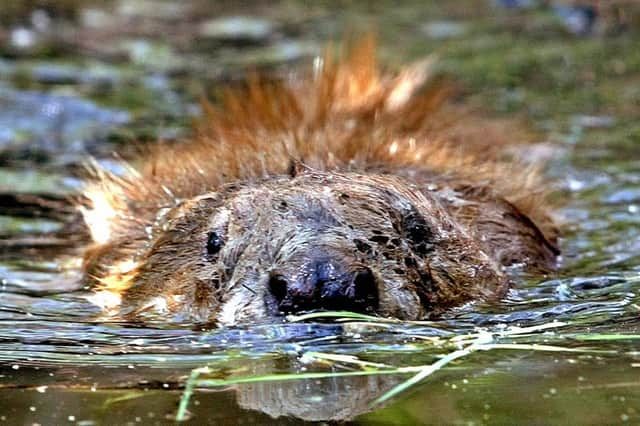This is how beavers could be reintroduced to the UK near you - are they good for the environment?


Beavers will be released into the wild under Government proposals to support a “cautious” return of the semi-aquatic mammals to English rivers.
The species was hunted to extinction in Britain in the 16th century for their fur, glands and meat.
Advertisement
Hide AdAdvertisement
Hide AdThey have already made something of a return to England, and are found wild on the River Otter in Devon, the site of a successful official trial reintroduction, as well as on other rivers due to illegal releases or escapes.
They have also been introduced into enclosures in a number of English counties to help manage flooding and create habitat for other wildlife.
Environment Secretary George Eustice said: “Today marks a significant milestone for the reintroduction of beavers in the wild, with the launch of the Government’s consultation on our national approach and management of beavers in England.”
But just how could beavers be reintroduced to England? And what environmental effects will they have?
Here is everything you need to know about it.
Advertisement
Hide AdAdvertisement
Hide AdWhat is being proposed?
The Environment Department (Defra) is launching a 12-week consultation on further reintroductions into the wild and management of existing wild populations in England.
Under plans being put out for consultation, applications for licences to release beavers into the wild would need to meet certain criteria, including local buy-in and ensuring support for landowners and river users is in place.
Government conservation agency Natural England will play a key role in licensing releases and managing beavers.
Its chairman Tony Juniper said the launch of the consultation “marks an important and positive moment for the future of these wonderful animals in England”, as he encouraged everyone to respond to help shape the future of wild beavers in a way that reflected as many perspectives as possible.
Advertisement
Hide AdAdvertisement
Hide AdThe consultation seeks views on potential future releases into the wild, current and future releases into enclosures, and management of beaver activity or impacts in the wild, including on the River Otter and where other free-living beavers have made their homes.
It proposes that licences for reintroductions into the wild would need to meet criteria including demonstrating positive stakeholder engagement and local buy-in and proof that a comprehensive assessment has been undertaken of impacts on surrounding land, waterways, infrastructure, habitats and species.
Projects must also ensure that support for landowners and river users is put in place, under the proposals.
The native animals are also set to be given legal protection in England, making it an offence to deliberately capture, kill, disturb or injure them, or damage their breeding sites or resting places, as part of efforts to support their recovery.
Advertisement